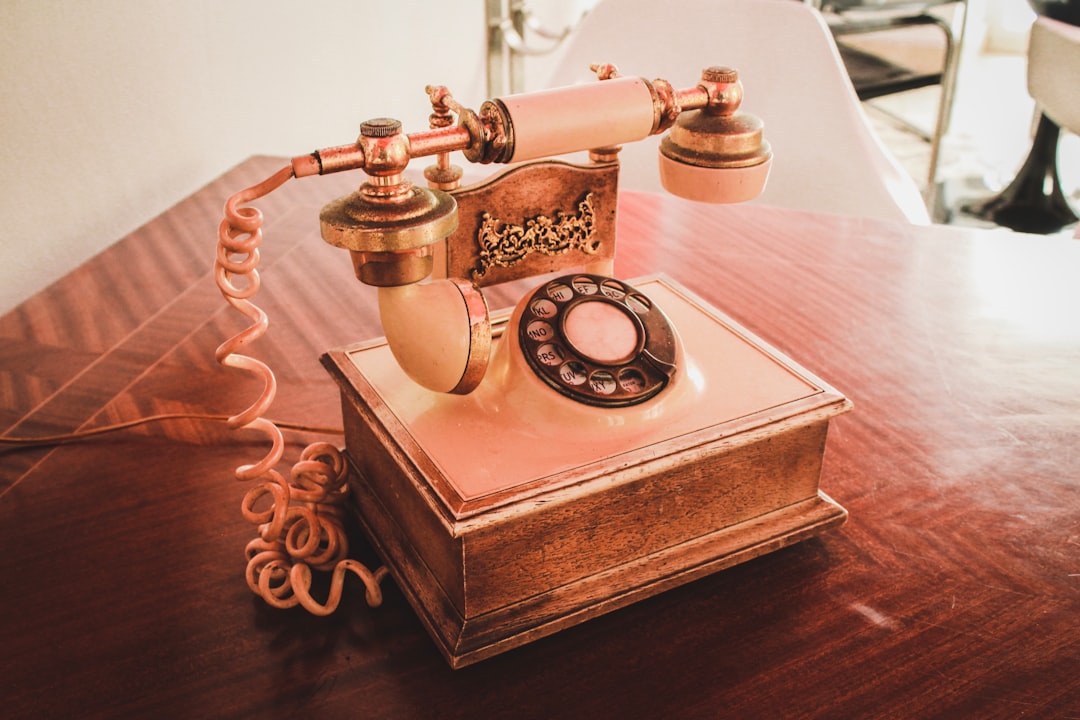Bloomington, Indiana residents combat unwanted spam calls through strict state regulations, with specialized Spam Call law firms providing guidance and education. These firms empower citizens to protect their phone lines by reporting robocalls, registering on the "Do Not Call" list, and leveraging Indiana's robust Spam Call laws. Community initiatives involve informational sessions, reporting channels, and collaborative efforts to create a quieter communication environment. By partnering with reputable Spam Call law experts, Bloomington can effectively safeguard residents from intrusive spam and robocalls.
In Bloomington, Indiana, robocalls and spam calls have become a growing concern for community members. This article guides you through understanding these unwanted phone calls, their impact on the local community, and the legal framework in Indiana designed to combat spam. We offer effective strategies to educate your neighbors about robocall protection, accompanied by an actionable plan to implement a local anti-spam campaign. By harnessing these resources, Bloomington residents can reclaim control over their communication channels. A spam call law firm in Indiana highlights the importance of collective action in this digital age.
Understanding Robocalls and Spam Calls in Bloomington, Indiana

In Bloomington, Indiana, like many places across the nation, residents frequently encounter unwanted spam calls. These automated phone calls, often from robocalls, promote products, services, or even political campaigns and can be a significant nuisance. Beyond being annoying, spam calls can also indicate potential fraud or scams, as they often disguise their origins to trick recipients into providing personal information or money.
Indiana has specific spam call laws in place to protect residents from these intrusive practices. A spam call law firm in Indiana plays a crucial role in ensuring compliance with these regulations and educating the community on how to prevent robocalls. By raising awareness, such firms empower citizens to take control of their phone lines and safeguard against the harmful effects of unsolicited telephone marketing.
The Impact of Unwanted Phone Calls on Community Members

Unwanted phone calls, often referred to as robocalls, can have a significant impact on community members in Bloomington, Indiana. These automated or pre-recorded messages, typically marketing or solicitation attempts, disrupt individuals’ daily lives and contribute to a growing concern among residents. Many people find them intrusive, leading to increased stress and frustration, especially when they are frequent and unwelcome.
The Spam Call law firm plays a crucial role in empowering community members to take control of their phone lines. By educating residents about the sources and methods behind robocalls, individuals can better protect themselves. This includes understanding the legal frameworks designed to combat such calls, like Indiana’s Spam Call laws, which provide avenues for consumers to report and stop unwanted communications. Armed with this knowledge, Bloomington’s residents can actively participate in maintaining a peaceful and less disruptive community environment.
Legal Framework: Indiana's Take on Spam Call Prevention

In Indiana, including Bloomington, the fight against robocalls and spam calls is not just a matter of good etiquette; it’s governed by specific laws designed to protect residents from unwanted communication. The Indiana Spam Call Law, part of the state’s comprehensive consumer protection regulations, provides citizens with powerful tools to combat intrusive telemarketing practices. This law sets clear guidelines for businesses engaging in outbound telephone marketing, ensuring that consumers have control over their phone lines and privacy.
Indiana’s approach to spam call prevention involves both individual rights and collective action. Residents can register their phone numbers on the state’s “Do Not Call” list, effectively blocking most commercial calls. Furthermore, local law firms specializing in telecom regulations offer guidance and support, empowering individuals to understand and exercise their legal rights against unwanted robocalls. By combining these measures, Bloomington residents can actively contribute to a quieter, more respectful communication environment.
Strategies to Educate Your Neighbors About Robocall Protection

Educating your neighbors about robocalls and protecting them from spam is a community effort that requires multiple strategies. Start by hosting informational sessions or workshops in common spaces, like neighborhood centers or local libraries. These gatherings can provide an opportunity to explain the nature of robocalls, how they operate, and the potential risks they pose. Engage your neighbors with interactive demonstrations and real-life examples to make the topic relatable.
Encourage open communication by establishing dedicated channels for reporting suspicious calls. You could set up a community-wide chat group or coordinate with local law firms specializing in spam call laws in Indiana to create a centralized reporting system. Regularly share updates, tips, and best practices related to robocall prevention through newsletters, social media groups, or door-to-door fliers. By fostering a culture of awareness and collaboration, Bloomington can become a safer place for residents against unwanted robocalls.
Action Plan: Steps to Implement a Local Anti-Spam Campaign

To implement an effective local anti-spam campaign in Bloomington, start by educating your community about the problem and its implications. Host workshops or seminars to raise awareness about robocalls and their impact on residents’ daily lives. Collaborate with local businesses and schools to share best practices for identifying and blocking spam calls.
Next, form a partnership with a reputable Indiana-based law firm specializing in spam call prevention. Their expertise can provide guidance on navigating the Spam Call law and offer legal recourse against persistent spammers. Together, you can develop tailored strategies that address Bloomington’s unique needs, ensuring a safer and quieter environment for residents.






